We Dive Into Your Projects
What were the projects or initiatives you worked on? We probe to understand the scope, the stakes, and the significance.
"Tell me about the biggest project you led last year..."10+ Environmental Resume Examples
In Environmental, you're competing with 800 applicants per search
You're Not Rejected.
— You're Overlooked —
We fix your environmental resume with one conversation
The strongest environmental resumes lead with regulatory outcomes, remediation impact, and compliance program scope — not duty lists or certification inventories. Hiring managers at firms like Tetra Tech, AECOM, and ERM scan for ESA experience, NEPA/MEPA compliance, EHS management system implementation, and proof that your work delivered measurable environmental and business outcomes. Every resume sample on this page was built through a 1-on-1 interview that extracted the specific regulatory and project outcomes that differentiate candidates in a field averaging 800 competitors per job search.
Each environmental resume sample below was written through our 1-on-1 interview process. Click any environmental resume example to see the full sample and learn how we transformed their experience into proof.
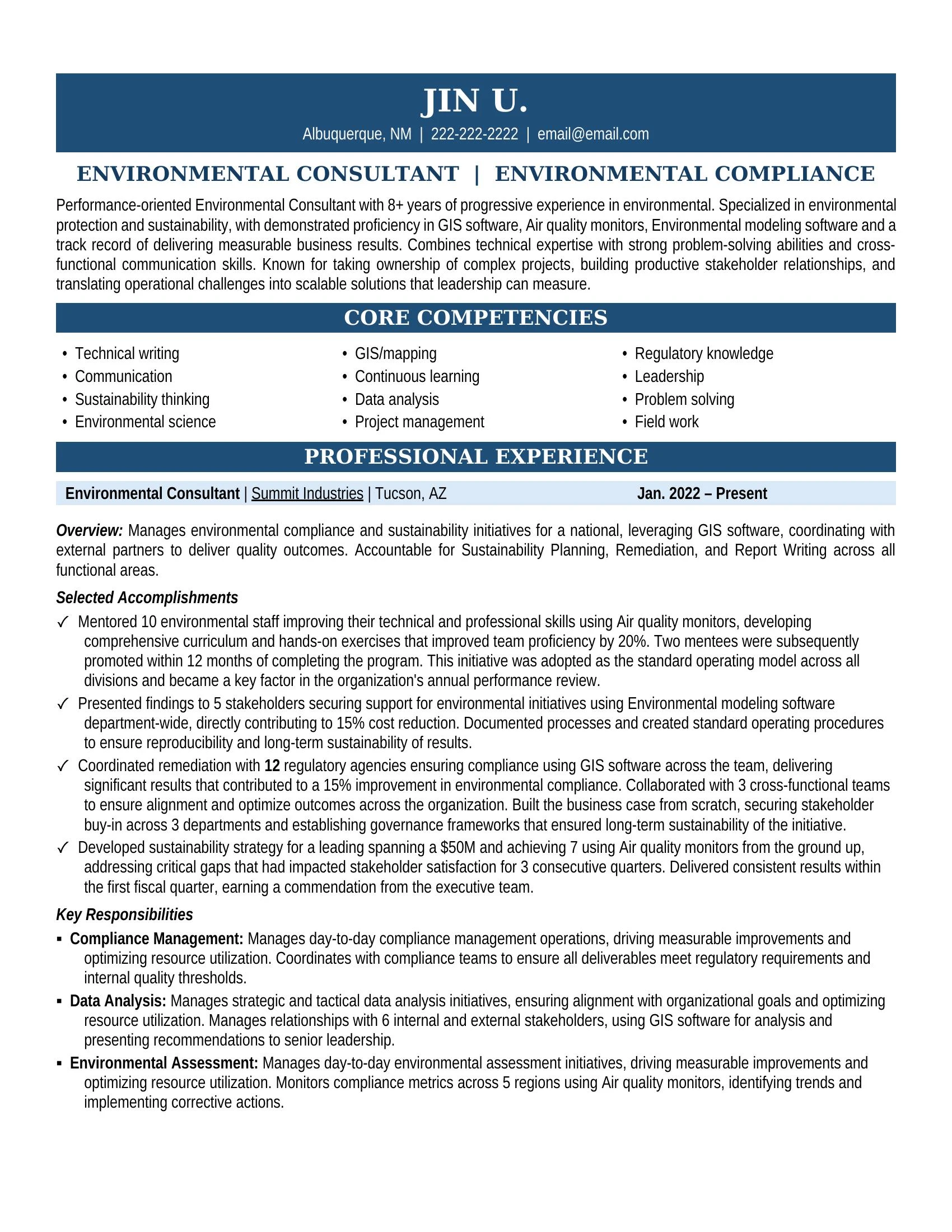
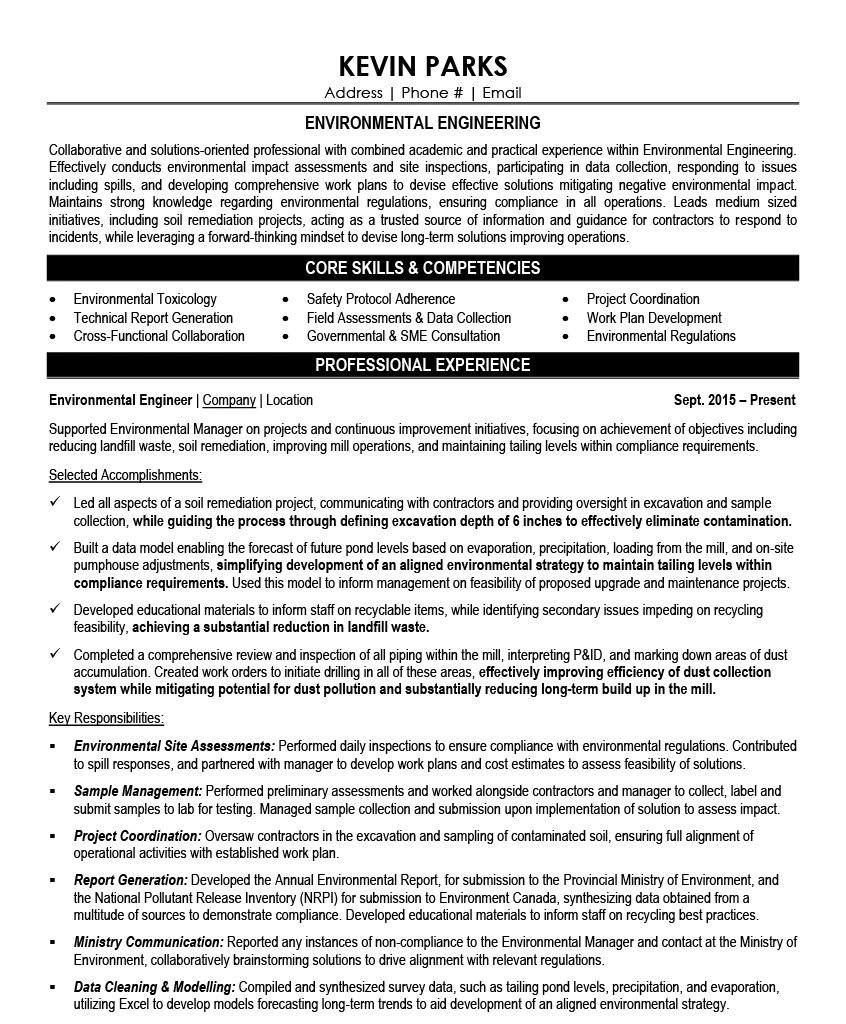
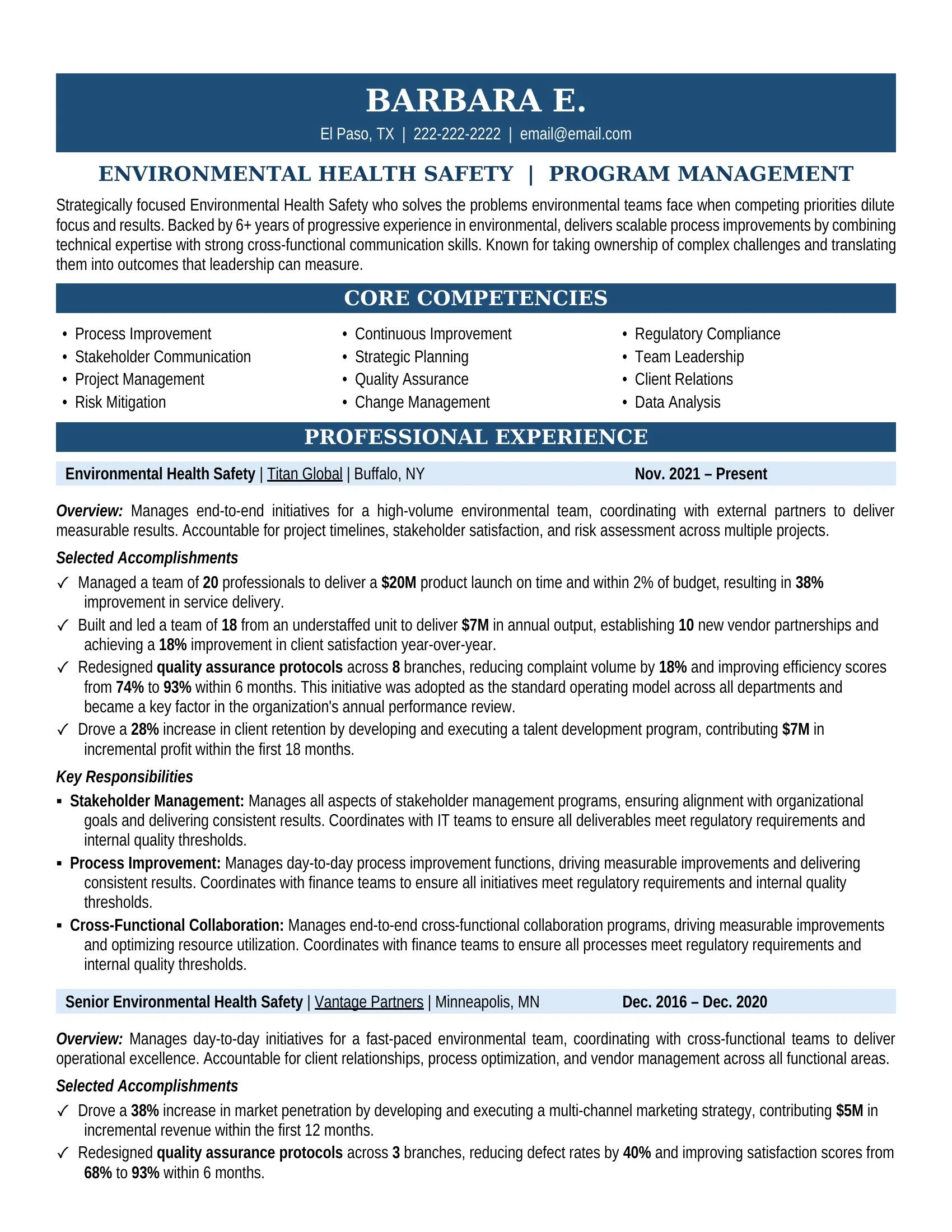
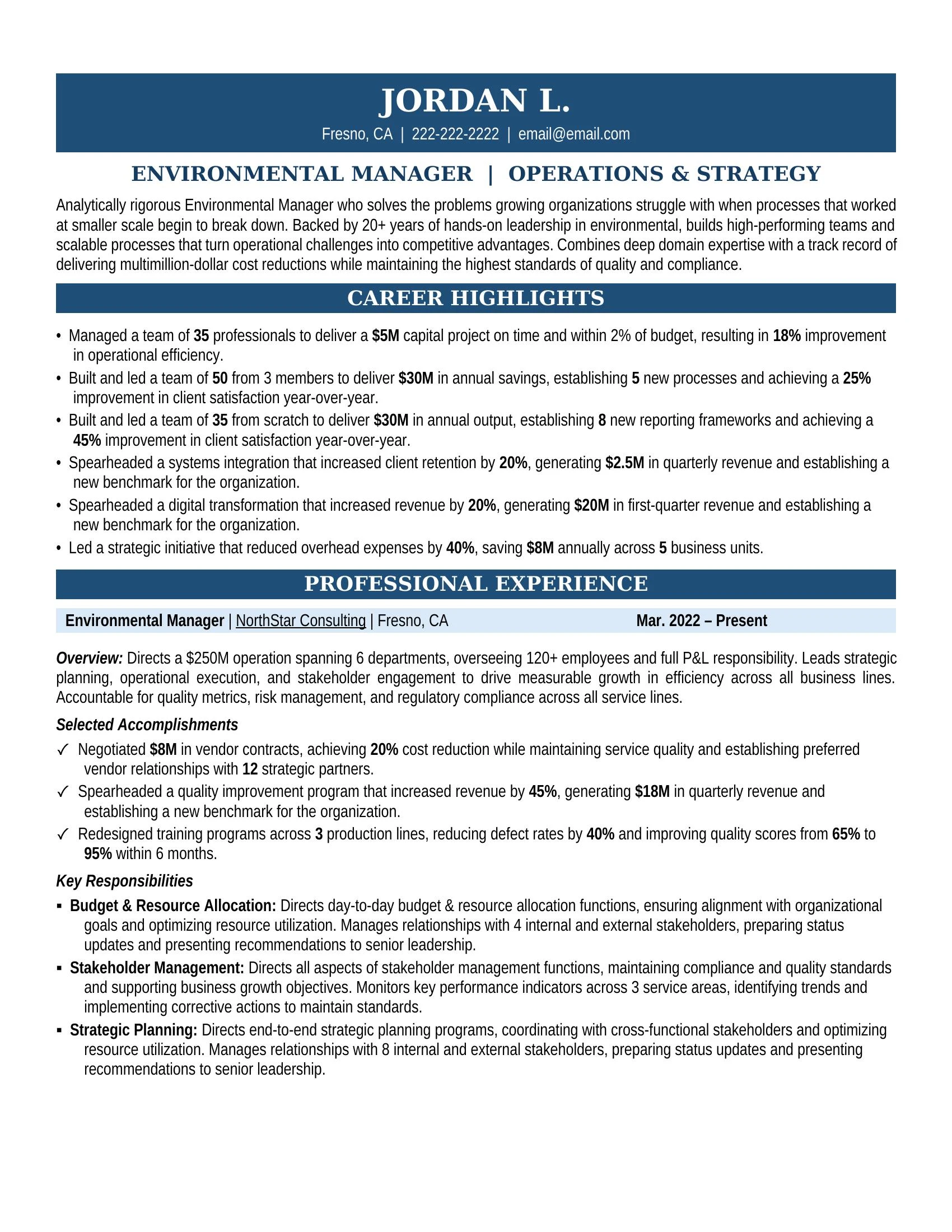
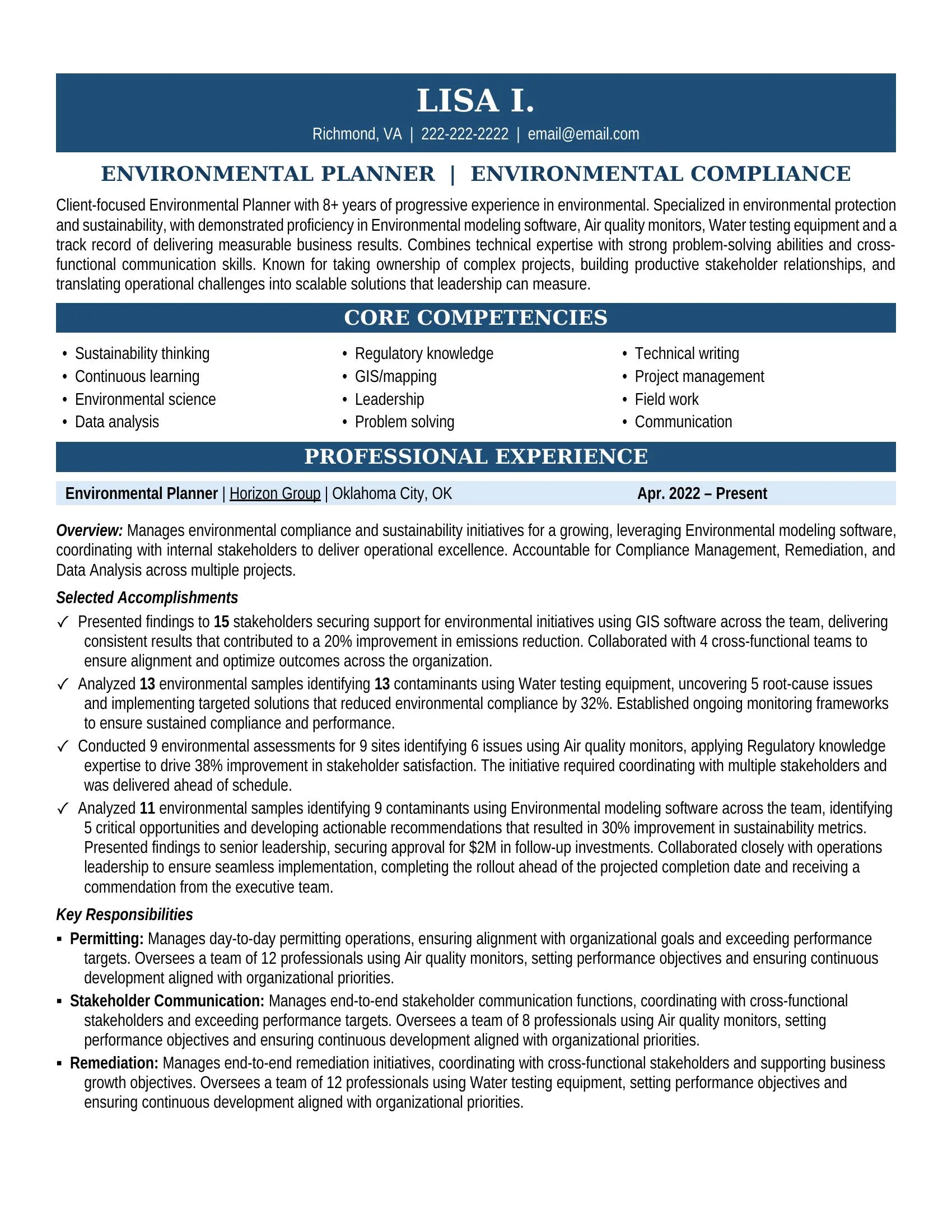
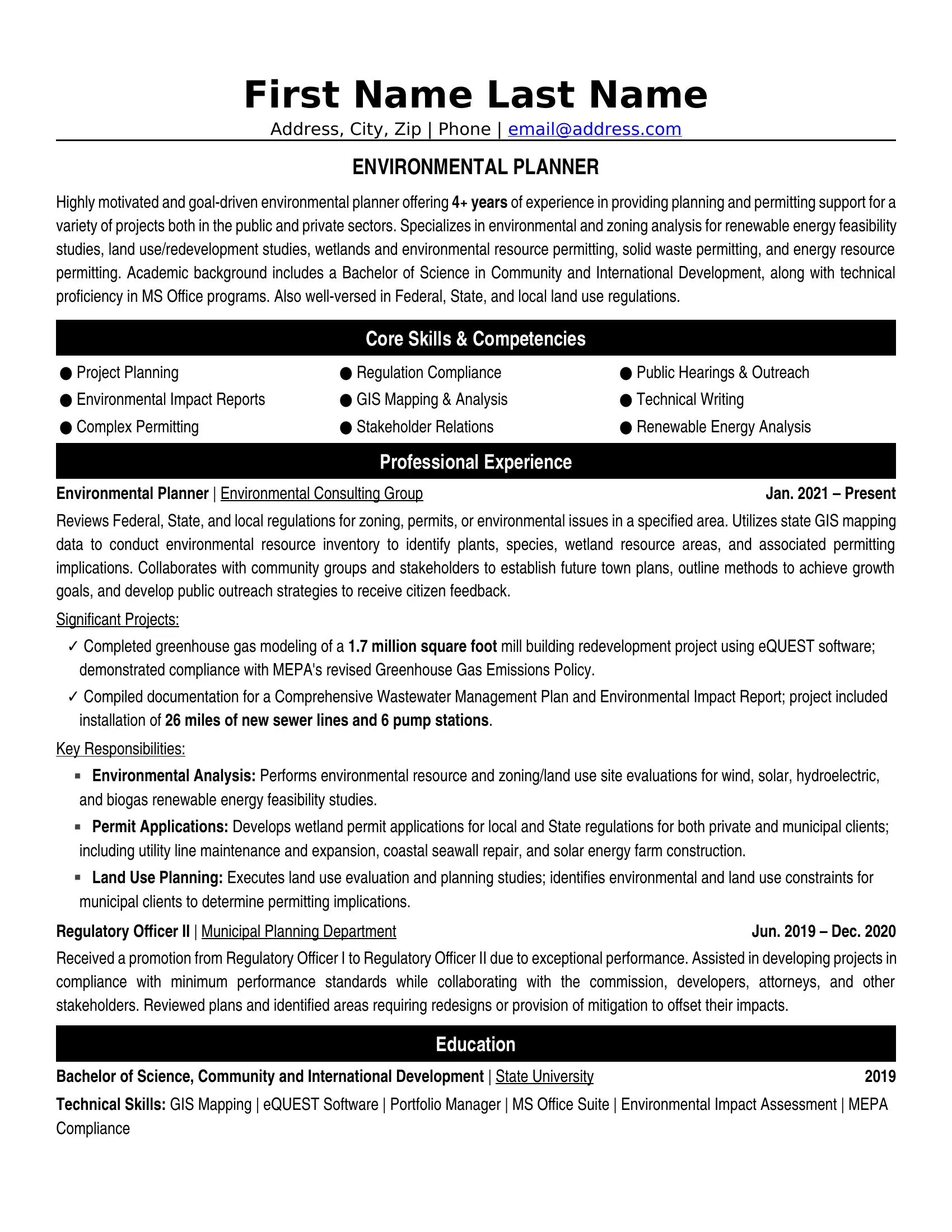
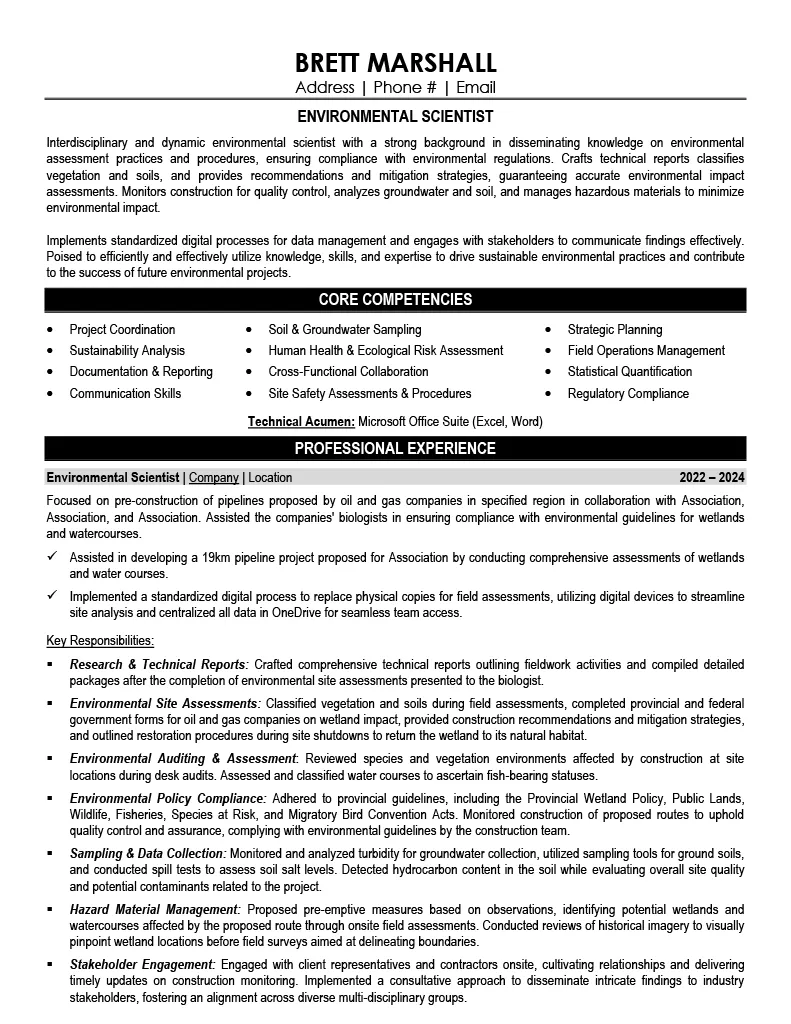
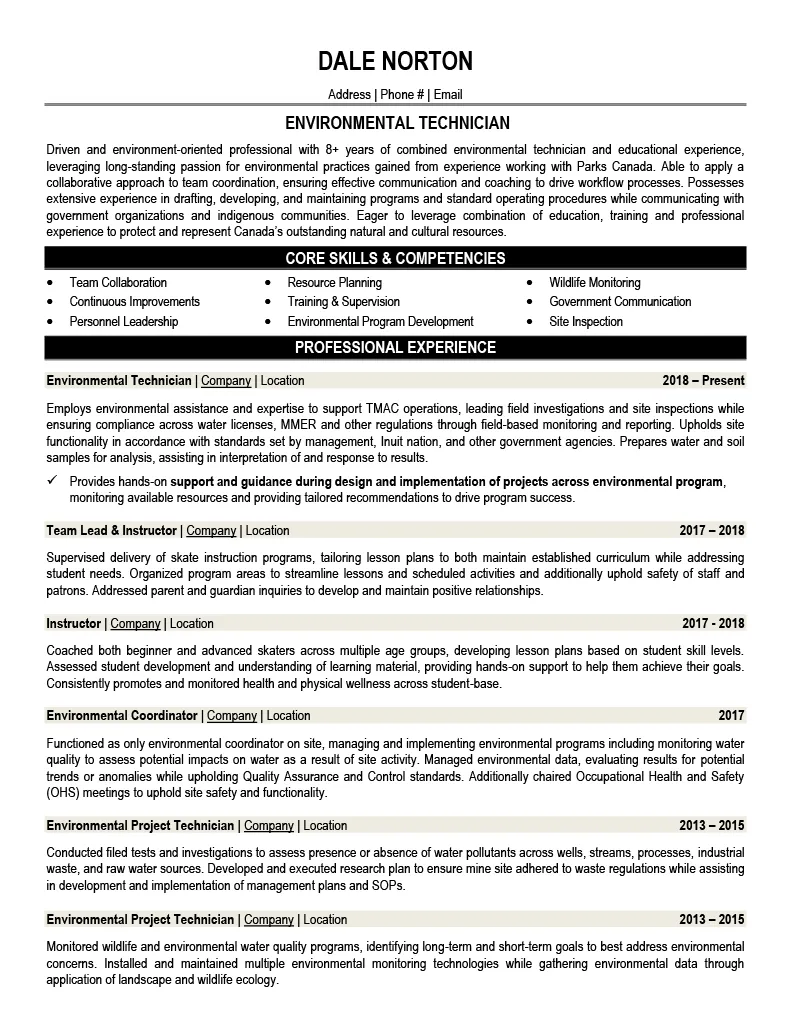
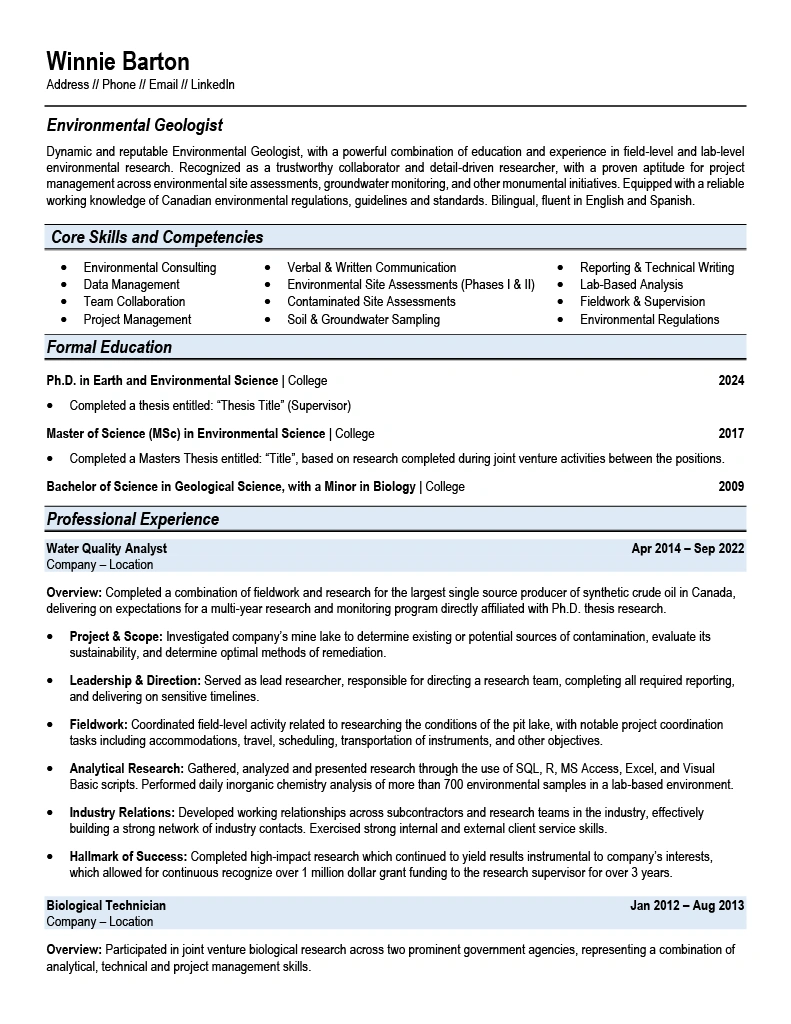
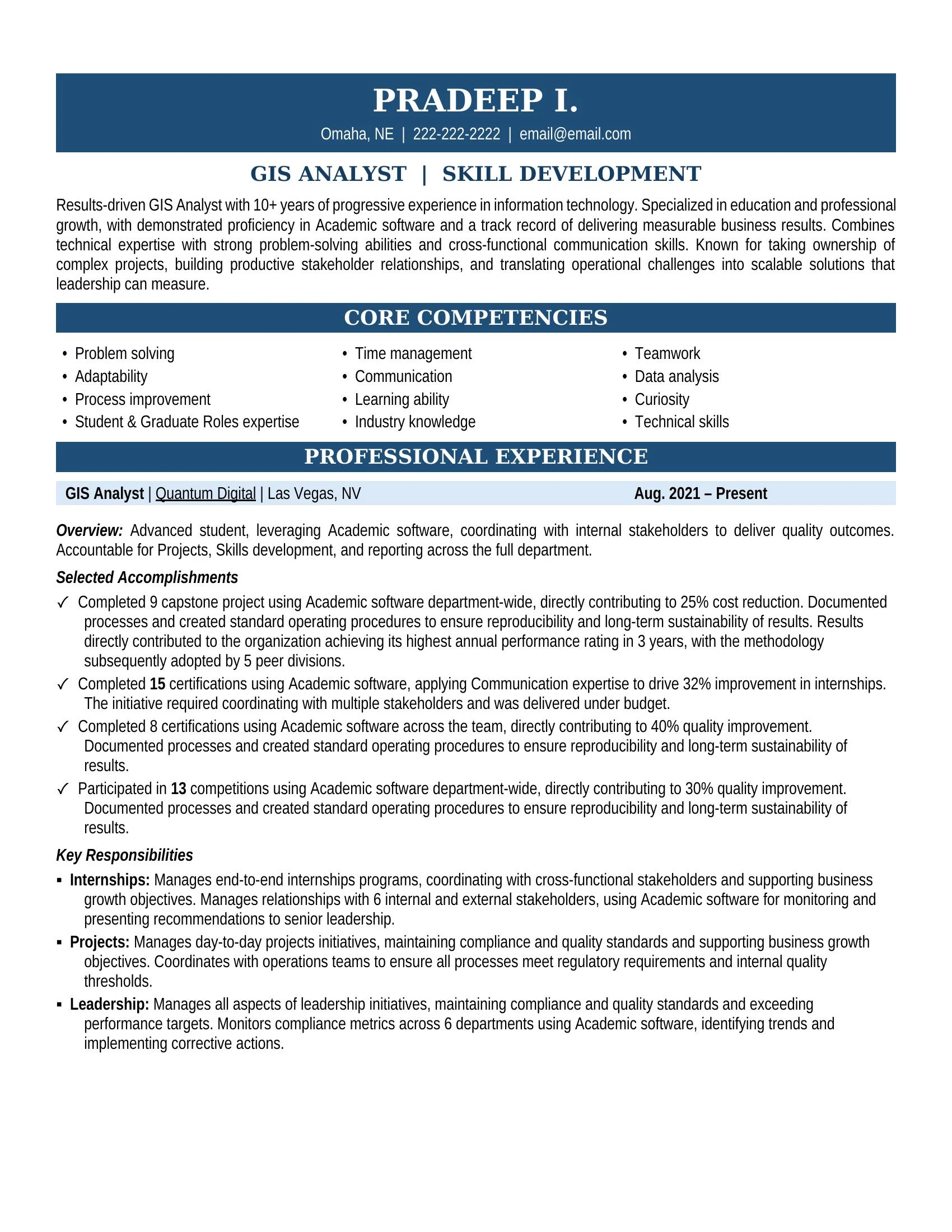
When a hiring manager reads your environmental resume, they should think:
"This person has solved the exact problems we're facing."
What were the projects or initiatives you worked on? We probe to understand the scope, the stakes, and the significance.
"Tell me about the biggest project you led last year..."What were the goals of the project? The company's objectives? We connect your work to business outcomes.
"What was the company trying to achieve with this?"What systems, processes, and strategies did you implement? This is where your expertise becomes visible.
"Walk me through how you actually made this happen..."What challenges did you face? What systems did you implement to overcome obstacles?
"What was the biggest challenge, and how did you solve it?"See how our interview process uncovered achievements and turned them into interview-winning proof.
Get Your Environmental Resume Written
Environmental jobs average 40 applicants per position. You're competing against 800 candidates. Our environmental resume examples show how to stand out.
Data based on LinkedIn job postings. Updated Feb 28, 2026.
Here's the math most job seekers don't do:
Your environmental resume must stand out against 800 professionals.
What makes you different is the story behind the projects.
Get Your Environmental Resume WrittenEvery environmental resume example on this page was written through our 1-on-1 interview process. We extract achievements you'd never think to include.
We identify keywords and achievements that get environmental resumes noticed.
Targeted questions about your environmental projects and results.
Transform responsibilities into quantified achievements.
ATS-optimized resume in 3 business days + 14-day revisions.
80% of environmental positions are never advertised. Get your resume directly into the hands of recruiters filling confidential searches.
When you purchase our Resume Distribution service, your resume goes to 450+ recruiters specializing in environmental — included in Advanced & Ultimate packages.
| Agency | Location |
|---|---|
|
HA
Hays Specialist Recruitment
|
Nationwide |
|
RA
Randstad Staffing Agency
|
Nationwide |
|
KE
Kelly Services Workforce Solutions
|
Nationwide |
|
MA
ManpowerGroup Talent Solutions
|
Nationwide |
|
AD
Adecco HR Services
|
Nationwide |
Environmental averages 40 applicants per position across 5,000 active job postings — but competition varies significantly by specialty. Environmental Scientist positions draw about 48 applicants per opening, Environmental Planner roles average 47, Environmental Engineer and EHS Manager positions each see about 37, and HSE Manager roles draw 31 applicants. Environmental Technician positions average 29 applicants, while senior Environmental Planner roles see about 24. Apply to 20 positions in a typical 30-day search and you're one of roughly 800 candidates competing. In environmental, the resume that shows "Fortune 500 supply chain oversight with measurable OSHA incident reduction and COVID-19 response coordination" beats "led safety protocols across operations" every time.
Because environmental achievements are regulatory outcomes and project deliverables that questionnaires never capture. An Environmental Engineer who "managed a soil cleanup project" could mean anyone. Our interview uncovered one client who led remediation projects with quantified environmental improvements, data modeling capability, and engineering solutions that proved measurable impact — in a 37-applicant field. An EHS Manager who "developed an environmental management system" becomes someone who built and implemented management systems at scale, developed audit programs, and demonstrated industry leadership across global teams. Our HSE Manager sample revealed Fortune 500 supply chain oversight, COVID-19 response coordination, and measurable OSHA incident reduction. Our Environmental Planner shows NEPA/MEPA experience, GIS proficiency, and stakeholder coordination across public and private sectors. A questionnaire reduces all four to "environmental professional." The interview captures the regulatory scope, the compliance outcomes, and the project impact.
They're screening for regulatory expertise and project deliverables — not years of experience or degree credentials alone. For Environmental Scientists: ESA experience, field assessment methodology, sampling proficiency, and technical reporting quality — our sample demonstrates oil and gas sector expertise with stakeholder communication. For Environmental Engineers: remediation project leadership, data modeling, and quantified impact — they want engineering solutions to environmental problems. For EHS/HSE Managers: management system scope (ISO 14001, OSHA), audit program development, and global team leadership — our HSE Manager sample shows Fortune 500 supply chain oversight. For Environmental Planners: NEPA/MEPA compliance, GIS proficiency, greenhouse gas analysis, and multi-sector permitting. For Environmental Technicians: field monitoring experience, data collection quality, and safety certifications — our sample shows Parks Canada and TMAC operations work. ATS systems at firms like Tetra Tech, AECOM, and ERM keyword-scan for certifications (PE, PG, CHMM, QEP, HAZWOPER) and regulatory frameworks before a human reviews your resume.
It matters fundamentally — these are different career tracks with completely different proof points. Environmental consulting proves site assessment capability, remediation project management, and client deliverable quality — our Consultant sample demonstrates regulatory communication and stakeholder management. EHS/HSE management proves compliance program scope, safety performance metrics, and organizational reach — from management system implementation to Fortune 500 supply chain oversight with OSHA incident reduction. Environmental engineering proves technical problem-solving through remediation design, data modeling, and quantified environmental improvement. Environmental planning proves regulatory navigation through NEPA/MEPA compliance, permitting success, and GIS-based analysis across public and private sectors. Field science and technician work proves monitoring capability, data collection quality, and program development — from Parks Canada to TMAC operations. During your interview, our writers identify your environmental specialty and extract the metrics that matter in your target role.
Our environmental resume packages are based on career level and interview depth — from a 30-minute early career session to a 90-minute executive interview. When evaluating price, consider what the number actually buys. A company charging $99: after the company takes its margin, the writer earns $40-60 — enough for about 45 minutes of total work including writing. That's a questionnaire reformat that produces "managed environmental projects and ensured compliance." Our Professional-level interview alone is 60 minutes, followed by job posting analysis, drafting, and revisions — producing "Fortune 500 supply chain oversight, COVID-19 response coordination, and measurable OSHA incident reduction across global operations." View current packages and pricing.
We offer a 90-Day Interview Guarantee. If you don't land interviews within 90 days of receiving your final environmental resume, we rewrite it free of charge. We can make this guarantee because our interview-based process produces resumes built on the regulatory outcomes, project deliverables, and compliance metrics that environmental hiring managers respond to. Browse the resume samples on this page to see the quality of work we deliver.